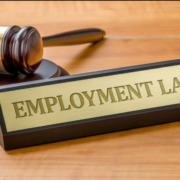Fresh NZ Employment Law Updates: AEWVs, Amendments and Freight Safety
You need to know about the recent developments in employment law. They affect migrant hires, legislative change, and worker safety. Each one demands action from you – now.
1. AEWV Scam Case Shows Risk
A Chinese migrant paid around RMB 80,000 (NZ$18,000) in China to secure an Accredited Employer Work Visa (AEWV). He arrived in NZ, found digs at NZ$130/week, but got no job or contract. After two months without work, he was dismissed. He sought penalties under the Wages Protection and Fair Trading Acts. In June 2025, the ERA found no employment relationship existed. It dismissed his claims.
Source: https://www.lexology.com/library/detail.aspx?g=6240d934-8673-4797-b3f3-5eb958c9b745
What this means for you:
- As an employer, make sure AEWVs are checked directly with Immigration NZ.
- Don’t rely on agents who may be unlicensed.
- Keep a copy of the job offer, visa, payments and correspondence.
- Ensure all discussions and agreements are in writing and signed by both parties
- Never conduct any transactions in cash
- Ensure you have a signed employment agreement and keep accurate records of hours worked, payslips, sick and annual leave.
If you’re a migrant, don’t pay large sums before getting a signed contract and verifying your visa.
2. Freight Sector Demands Dismissal Flexibility
Transporting NZ, representing freight companies, submitted that unsafe drivers should be able to be dismissed quickly. They want the Amendment Bill to allow this to enhance safety and efficiency. Source. https://www.scoop.co.nz/stories/BU2506/S00469/freight-companies-need-flexibility-to-end-unworkable-employment-relationships.htm?z
Freight operators face risk if unsafe staff stay. This proposal signals a shift towards safety-first dismissal rules in transport roles.
We stand firmly against this proposal as it removes the basic right for every employee to be heard and to have a fair process prior to being disciplined. Dismissal should also be the absolute last option in an enlightened employment relationship. In my opinion if Transport operators are concerned about the quality of their employees they should apply better selection processes, better management practices and offer competitive remuneration.
3. Employment Relations Amendment Bill Arrives
On 17 June 2025, the Government introduced the Employment Relations Amendment Bill. Source: https://www.legislation.govt.nz/bill/government/2025/0175/latest/whole.html
Here’s what it proposes:
- A higher unjustified dismissal income threshold.
- A clearer gateway to define contractors vs employees.
- Updates to personal grievance processes.
- Removal of the 30-day rule for collective agreements.
It’s designed to boost clarity and flexibility. For employers, this means updating contracts, policies, and training managers on new processes. We discuss these reforms below.
4. Higher Unjustified Dismissal Income Threshold
The Employment Relations Amendment Bill recently announced the introduction of a $180,000 per annum income threshold for unjustified dismissal. Source: https://www.mbie.govt.nz/dmsdocument/30303-introducing-income-threshold-unjustified-dismissal-proactiverelease-pdf
The proposed amendment means that affected employees will be unable to file personal grievances for unjustified dismissal, and it will be phased in over a 12-month period. Businesses will have to brace for a shift in how employment issues are handled for higher-paying employees.
From the perspective of an employee—particularly one in a senior, long-serving role the proposal to raise the income threshold for unjustified dismissal claims raises serious concerns about access to justice, fairness, and employer accountability.
- Erosion of Job Security
For many high earners, this policy feels like a rollback of fundamental employment protections. The ability to challenge an unjustified dismissal is a cornerstone of fair employment practices. Removing this right based solely on income could be seen as discriminatory and unjust, especially when performance issues can be subjective.
- Pressure to Avoid Pay Rises
Some employees may resist promotions or salary increases that push them over the threshold, fearing the loss of legal protections. This could create a perverse incentive where talented individuals undervalue themselves to retain job security
- Unequal Bargaining Power
While the law allows for an opt-out, not all employees have equal negotiating leverage. Senior executives might secure favourable terms, but mid-level professionals nearing the threshold may struggle to negotiate protections, especially in tight job markets.
- Increased Risk of Arbitrary Dismissals
Without the threat of legal recourse, some employers might feel emboldened to dismiss high earners without due process, relying solely on contractual notice periods. This could lead to toxic workplace cultures where loyalty and performance are undervalued.
- Administrative Confusion
The 12-month transition period and the need to renegotiate contracts add complexity and uncertainty. Employees may not fully understand the implications or may miss the window to opt out, leading to unintended loss of rights
Balanced View
While the policy aims to give businesses more flexibility in managing senior roles, it risks undermining trust and creating inequities in the workplace. Employees may feel that income should not determine access to justice, and that fair treatment should be universal, not conditional.
5. Gateway Test for Defining Contractors vs Employees
Businesses will be introduced to a new ‘gateway test’ to assess whether a worker is classified as an employee or independent contractor. Source: https://www.beehive.govt.nz/release/increased-certainty-contractors-coming
This is particularly relevant today with the Uber driver case going to the Supreme Court.
If a worker meets these four criteria in the test, he or she will be considered a contractor to a business:
- A written agreement specifying that the worker is an independent contractor.
- The business does not restrict the worker from working for another business (including competitors).
- The business does not require the worker to be available to work at specific times or for a minimum number of hours. The worker can also subcontract the work.
- The business does not terminate the contract if the worker does not accept an additional task.
6. Updates to Personal Grievances Process
The government will be introducing reforms to the personal grievances process which they claim will prevent unjustified claims and reduce employer costs. Source: https://www.beehive.govt.nz/release/removing-rewards-poor-employee-behaviour
Currently, if an employee files for personal grievance, the Employment Relations Authority or Employment Court may provide them with remedies, including role reinstatement, reimbursement of lost wages, and compensation for humiliation and distress.
This can be unfair to employers in scenarios where employees who engaged in serious misconduct still receive financial remedies due to technicalities. For example, an employee who was dismissed for theft still received $21,000 in compensation from their former employer.
The new changes propose to remove all remedies for employees whose behaviour is considered serious misconduct. It also proposes remedy reductions of up to 100% where an employee’s behaviour has contributed to the grievance. We believe this option should be at the discrecion of the Authority members who have investigated the matter and are charged with making a fair and reasonable determination.
The change creates a Risk of Employer Overreach
Removing the ability to challenge unjustified dismissals could embolden poor management practices, particularly in high-pressure sectors. Without the check of legal recourse, some employers may feel less compelled to follow fair and transparent processes
Mischaracterizing ‘Grievance Culture’
The idea that New Zealand has a “grievance culture” is overstated and dismissive of genuine workplace issues. Most employees raise concerns not to exploit the system, but because they feel wronged or mistreated. Rather than discouraging grievances, the focus should be on improving management practice, communication and workplace culture
Better Solutions Exist
If the goal is to reduce frivolous claims or streamline processes, there are less harmful alternatives—such as clearer procedural guidelines, mediation support, or faster resolution mechanisms. Stripping rights from a segment of the workforce is a blunt and unfair tool.
Final Thoughts
These changes may benefit some employers in the short term, but they risk damaging morale, increasing turnover, and eroding trust in the long run.
7. Scraping the 30-day rule
The 30-day rule states that both employee and employer are bound by the terms of any employment agreement for the first 30 days of that employee’s employment. This will no longer be mandatory under the proposed law. Source: https://www.hcamag.com/nz/specialisation/employment-law/new-zealand-to-scrap-30-day-policy-for-employment-agreements/531783
The changes are done to give employers more freedom of choice while reducing their administrative and financial burden.
Practical Steps for You when it comes to your Employees in NZ – Brought to you by Mike Harrison of Employment Equity Ltd. 0800 Dismissed | No Win, No Fee.
- Check your AEWV process now. Ensure every migrant hire comes with verified visas and signed offers.
- Update your contracts and handbooks. Include new thresholds, clarity on contractor status, and revise personal grievance steps.
- Prepare for safety-critical roles. Agree on clear rules for immediate action if risk arises, especially in transport sectors.
Make these changes ahead of the Bill’s passing. It’ll save stress—and legal trouble—later.
FAQs when it comes To Employment Law in NZ
Q1: What’s an AEWV and why verify?
An Accredited Employer Work Visa lets accredited employers hire from overseas. Use Immigration NZ’s portal to confirm its validity before hiring or onboarding.
Q2: What changes to unfair dismissal rules?
The threshold income level is increasing. That adjusts who qualifies. Serious misconduct may also block personal grievances. You must record policy, evidence and process.
Q3: Is the Bill law now?
No, it’s in Parliament. But it’s likely to pass. Use this time to adapt. Better now than rushed later.
Q4: Can I set immediate dismissal for unsafe roles?
Under current law, you need cause and process. The proposed changes may allow faster action for clearly defined safety breaches. Review your role profiles now.





